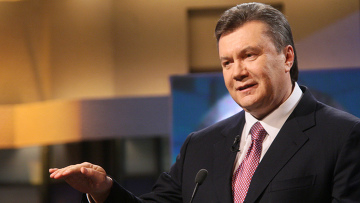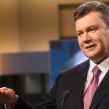
Will Ukraine and Its Friends Learn Lessons from the Disappointing 2012?
Publication: Eurasia Daily Monitor Volume: 10 Issue: 2
By:

The year 2012 was a disappointing one for Ukraine. In the field of foreign policy, Kyiv failed to either convince the European Union to sign an association and free trade agreement or persuade Russia to cut the gas prices that the ailing Ukrainian economy can barely afford to pay. Domestically, in the meantime, a parliamentary election was botched; consequently, more power was concentrated in the inner circle of President Viktor Yanukovych who moved closer to authoritarianism, while the opposition became more toothless and more xenophobic. There are chances to reverse some of these worrying trends in 2013. The West whose opinions Kyiv, unlike Minsk or Moscow, has not yet learned to disregard, could help with advice, more understanding and more resolution where needed.
Ukraine and the EU initiated the text of the association agreement in March 2012 and of its free trade clauses in July, but the EU delayed the documents’ signing. European Commission President Jose Manuel Barroso said in September that he saw no political conditions for the signing until Ukraine demonstrated its commitment to democracy by conducting a free and fair election in October and addressed the issue of justice in the trials of the prominent opposition leaders former Prime Minister Yulia Tymoshenko and former Interior Minister Yury Lutsenko (Interfax-Ukraine, September 15, 2012). The West believes their imprisonment was politically motivated.
The October 29 election was marred by allegations of an unequal playing field, vote buying and ballot tampering, which were confirmed by Western observers. A victory for Yanukovych’s Party of Regions (PRU) had been facilitated by the adoption, less than a year before voting day, of new election rules that eventually led to the irregularities. But the opposition—organizationally, financially and intellectually weakened after Tymoshenko’s imprisonment—did not oppose the change. Furthermore, the only more-or-less populous protests organized by the opposition ahead of the election focused not on threats to democracy or economic hardships, but on the issues of language and ethnic identity. This helped the least pro-democratic and least pro-Western among the opposition parties, the far-right Freedom, to enter parliament for the first time.
Moreover, the opposition flatly dismissed the European Parliament’s call after the election on democrats in Ukraine not to cooperate with Freedom, while Freedom said the call had been initiated by “a communist who is a homosexual” (ICTV, December 17, 2012; UNIAN, December 21, 2012). Freedom’s victory only added to the list of setbacks to democracy in Ukraine while Tymoshenko and Lutsenko stay in prison and five seats are yet to be filled in parliament because ballot-tempering in the respective single-seat constituencies made it impossible to calculate the outcome.
The EU’s conditions for signing the association agreement clearly remain unfulfilled. However, the EU made it clear in December that the signing could take place in November 2013 or earlier, and the European Parliament warned in a resolution against isolating Ukraine. This may be a sign of factions within the EU increasingly fearing that Ukraine may prefer closer cooperation with Russia by joining the Moscow-led Customs Union in exchange for cheap Russian gas, rather than signing the association agreement with the EU which, Ukrainians argue, is detrimental to Ukrainian economic interests in the short-term as far as its free trade clauses are concerned. While the United States, busy with its own elections, had no visible policy on Ukraine last year, the EU’s policy was incoherent and sometimes potentially damaged bilateral ties and pro-democracy forces inside Ukraine. Illustrative of this were proposals in Brussels to condition visa regime facilitation for ordinary Ukrainians on the release of prisoners like Tymoshenko. The West could help Ukrainians if it agreed on a common policy towards their country and were more logical and realistic in its demands and expectations.
Russia, meanwhile, has been very coherent in insisting that Ukraine will have to join the Customs Union if it wants gas price discounts. Months of talks aimed at convincing Russia to cut gas prices and Yanukovych’s numerous meetings with Putin brought no result last year. Russia is well aware that the gas issue is very important for Ukraine’s gas-dependent industries at a time of crisis and for external financing as Ukraine did not manage to persuade the International Monetary Fund to issue new loans last year because it keeps subsidizing gas prices for households. Eventually, Yanukovych indicated he wanted to adopt certain provisions of the Customs Union to move closer to Moscow (UNIAN, December 5, 2012). This prompted only half-hearted objections from the opposition, which also after the election remained toothless on issues not related to language.
Meanwhile, seemingly without resistance from either the opposition or allied parties like the Communists who are losing all semblance of influence on the government, Yanukovych further consolidated his power vertical. In December, he re-appointed his loyal Prime Minister Mykola Azarov while reshuffling his cabinet. Yanukovych replaced the most independent- and reform-minded ministers with second-tier politicians and business managers reportedly linked to steel tycoon Rinat Akhmetov and Yanukovych’s elder son Oleksandr (Kommersant-Ukraine, December 25, 2012). The new government is hardly more pro-democratic or pro-Western than its predecessors. This does not bode well for 2013.




